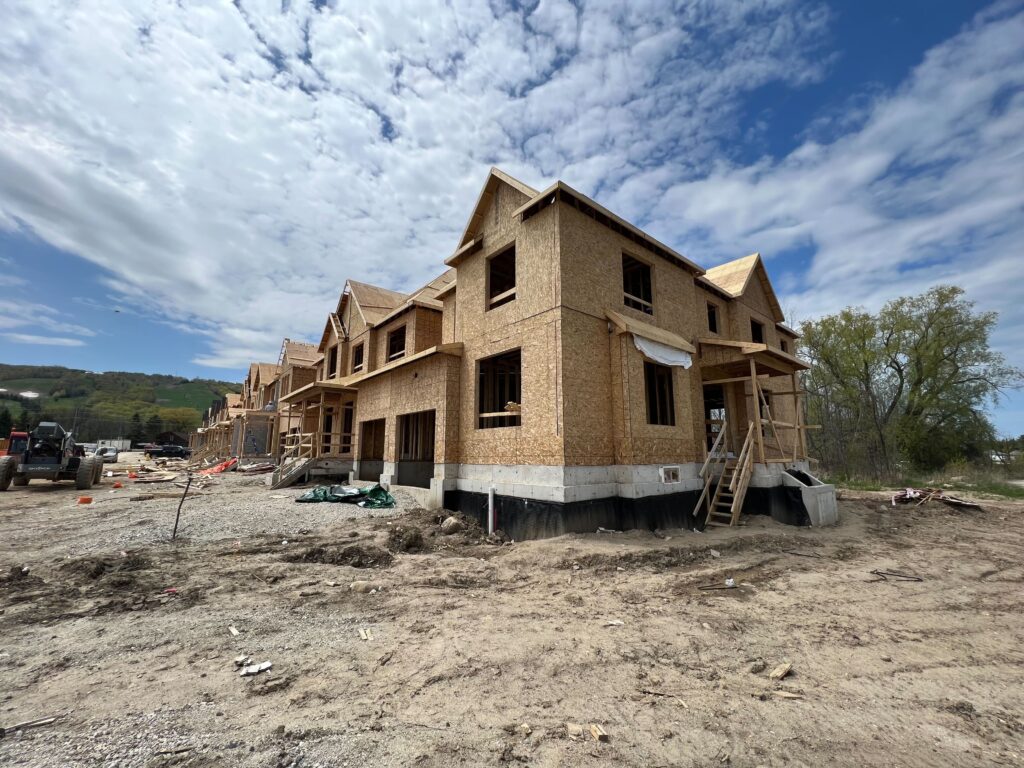
Buying a pre-construction home from a builder is an exciting journey that offers the prospect of customizing your future home to your liking. However, this process comes with its own set of challenges and considerations. Here’s a simplified guide to help you navigate through the process, ensuring a smoother transition into your new home.
Expanding on each point offers deeper insights into the complexities and considerations when buying a pre-construction home. Here’s a more detailed exploration:
#1 Understanding Market Value
Future Market Predictions: Real estate markets are influenced by various factors, including economic conditions, interest rates, and local developments. Engaging with real estate professionals can provide valuable insights into potential market shifts. Utilize resources like historical sales data and market trend reports for the area where your new home will be located. This research can help you gauge whether the market is expected to appreciate, offering a good return on your investment.
Mortgage Rate Fluctuations: Interest rates can significantly impact your monthly payments and the overall cost of your home. Since the construction of your home may take several years, it’s wise to consider potential rate increases when calculating your budget. Financial experts recommend budgeting for a higher rate than your pre-approval rate to safeguard against future rate hikes, ensuring you can afford your home once it’s ready.
#2 Mortgage and Downpayment Strategies
Pre-Approval: A pre-approval not only gives you an idea of your budget but also locks in an interest rate for a certain period, usually 90 to 120 days. This can protect you from immediate rate increases but remember, the final mortgage rate will depend on the rates at the time of your home’s completion. Regularly reviewing your financial situation and updating your pre-approval can help manage changes in interest rates or personal circumstances.
Downpayment: The initial downpayment is your first major investment in your new home. It’s important to have these funds readily available, as they are often required soon after signing the purchase agreement. Consider the source of these funds carefully; if they are tied up in investments, you may need to plan for the best time to liquidate without incurring losses.
Lender Research: Exploring different lenders can reveal a range of mortgage products and interest rates. While primary lenders like banks offer competitive rates, they have stringent approval criteria. Alternative lenders may be more flexible but come at a cost of higher rates and fees. It’s crucial to weigh the pros and cons of each option, considering your financial stability and the likelihood of approval.
Mortgage Re-approval: Circumstances can change over the construction period, affecting your mortgage qualification. Securing a re-approval closer to your closing date can ensure that you are still eligible for financing under the current conditions. This step is especially important if there have been significant changes in your income, employment, or credit score.
Builder Extensions: If unforeseen circumstances prevent you from closing on time, some builders may offer extensions. However, these can come with additional costs, reflecting the builder’s expenses to carry the project longer. It’s important to communicate with your builder and understand any potential fees involved in an extension.
#3 Knowing What You’re Getting
Home Features and Upgrades: Understanding exactly what is included in the base price of your home is critical. Builders typically offer a range of upgrades and customization options, each adding to the final cost of your home. Decisions on upgrades should consider both your budget and your lifestyle needs. Remember, changes after installation can be costly or impossible.
Freehold vs. Condo: The choice between a freehold property and a condominium affects not just your lifestyle but also your financial obligations. Freehold owners are responsible for all aspects of their property, from maintenance to taxes, without shared costs. Condominium ownership involves monthly fees that contribute to the maintenance of common areas and can increase over time. Understanding these differences is crucial in selecting the right type of home for you.
#4 Preparing for Closing Costs
Interim Closing Costs: In the case of condos, the interim closing phase requires you to pay occupancy fees before you officially own the unit. These fees are a temporary arrangement until the final closing and can add a significant amount to your upfront costs. Planning for these payments is essential for managing your finances during this period.
Final Closing Costs: Beyond the purchase price, additional costs at closing can include legal fees, land transfer taxes, and adjustments for prepaid expenses like property taxes. Estimating these costs in advance can help you budget effectively and avoid surprises.
#5 Dealing with Delays (Tarion Delays in Ontario)
Understanding Tarion Guidelines: Delays in construction are not uncommon, and knowing your rights under the Tarion Warranty Corporation can provide peace of mind. Tarion sets clear guidelines for notification and compensation related to construction delays. Familiarizing yourself with these rules can help you navigate any changes to your closing date and understand the builder’s obligations.
In summary, buying a pre-construction home involves careful planning and consideration in various aspects, from financial readiness to understanding the specifics of what you are purchasing. Engaging with professionals, staying informed about your rights and responsibilities, and preparing for the financial implications of your purchase are key steps towards a successful home buying process.